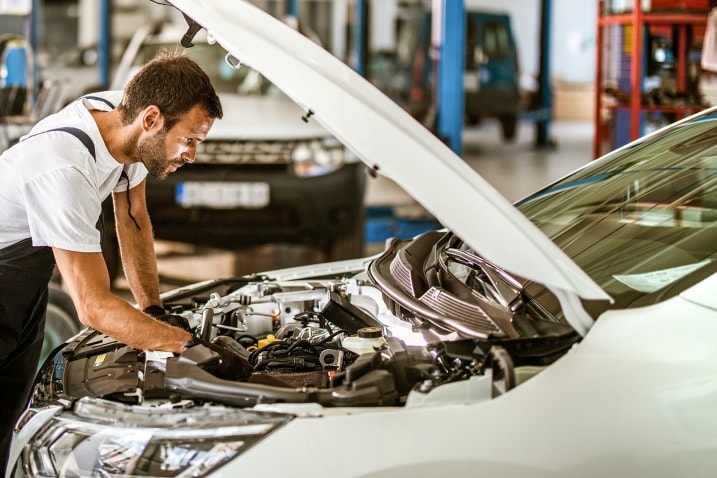All Categories
Featured
Preparing your lorry for a long-distance journey is necessary to guarantee safety, comfort, and effectiveness throughout the journey. Whether you're headed for a weekend break trip or a cross-country experience, making sure your cars and truck remains in top problem can protect against unanticipated troubles and keep you when driving. Right here are crucial steps to guarantee your lorry awaits long-distance travel.
![]()
![]()
Verdict. A little preparation goes a lengthy method when it comes to long-distance traveling. By examining your vehicle's liquids, inspecting the brakes and tires, and ensuring the battery and cooling system are functioning properly, you can reduce the risk of unexpected failures.
- Perform a Thorough Liquid Check. One of one of the most crucial checks prior to any long-distance drive is making sure all vital fluids go to the appropriate levels. Inspect your engine oil, transmission fluid, coolant, brake fluid, and windshield washing machine liquid. Running low on any of these can influence your vehicle's performance and safety and security. Top them up as required, and think about setting up an oil adjustment if it's been a while given that the last one. A well-lubricated engine is less most likely to overheat or create other concerns during the trip.
- Evaluate the Tires for Put On and Correct Inflation. Inspect the tire pressure and inflate them to the suggested levels to make sure optimal gas performance and handling. Check the tread deepness to make sure your tires can grasp the road properly, especially in slippery or wet problems.
- Check the Battery's Wellness. In addition, examine the battery's cost and age-- if the battery is over three years old, consider changing it to avoid potential failure during your journey. Some vehicle parts stores use complimentary battery testing, which can provide you peace of mind before hitting the roadway.

- Ensure the Air Conditioning System Is Functioning Properly. The cooling system maintains the engine from overheating, so it's critical to examine that it's functioning appropriately before a lengthy drive. Examine the radiator for any leakages or damage and check the coolant degrees. Leading it up with a mix of antifreeze and water according to the producer's recommendations if the coolant is low. Overheating can ruin an engine rapidly, so if you're unsure about your lorry's cooling system, take into consideration having it inspected by a professional mechanic prior to leaving.
- Test the Brakes. The condition of your brakes straight affects your safety, particularly on lengthy journeys where you'll be driving at high speeds. Check the brake fluid level and make certain it's at the optimum degree.
- Check Your Lights and Signals. Guarantee all your lorry's lights, consisting of fronts lights, taillights, brake lights, and transform signals, are working properly. In addition, clean your taillights and headlights to guarantee maximum exposure, specifically in foggy or stormy conditions.

- Load an Emergency Package. Always load an emergency situation package with necessary products, consisting of an initial aid package, flashlight, jumper wires, tire-changing devices, and an extra tire. Include basic products such as bottled water, non-perishable treats, and a blanket in case you end up stranded.
- Plan Your Path and Relax Stops. Mapping out your course in breakthrough is key to an effective long-distance journey. Make use of a General practitioner or smart device application to inspect for construction or roadway closures, and determine practical remainder stops for fueling and extending your legs.
- Schedule a Pre-Trip Assessment. If you're unclear regarding the problem of your car or desire a professional point of view, take into consideration arranging a pre-trip inspection at a vehicle shop. A mechanic can perform an extensive check, ensuring everything remains in great functioning order before you leave. This step is specifically important if you're taking a much longer trip or driving in strange areas.
Verdict. A little preparation goes a lengthy method when it comes to long-distance traveling. By examining your vehicle's liquids, inspecting the brakes and tires, and ensuring the battery and cooling system are functioning properly, you can reduce the risk of unexpected failures.
Latest Posts
Enjoy Gourmet Flavors with Canyon Crest’s Catering Services in Sunny Riverside.
Published Jan 07, 25
1 min read
Commercial Energy-Efficient Roofing: Save on Costs and Help the Environment
Published Jan 07, 25
1 min read
Maximizing the Worth of Your Carpeting Service Warranty
Published Jan 07, 25
2 min read
More
Latest Posts
Enjoy Gourmet Flavors with Canyon Crest’s Catering Services in Sunny Riverside.
Published Jan 07, 25
1 min read
Commercial Energy-Efficient Roofing: Save on Costs and Help the Environment
Published Jan 07, 25
1 min read
Maximizing the Worth of Your Carpeting Service Warranty
Published Jan 07, 25
2 min read